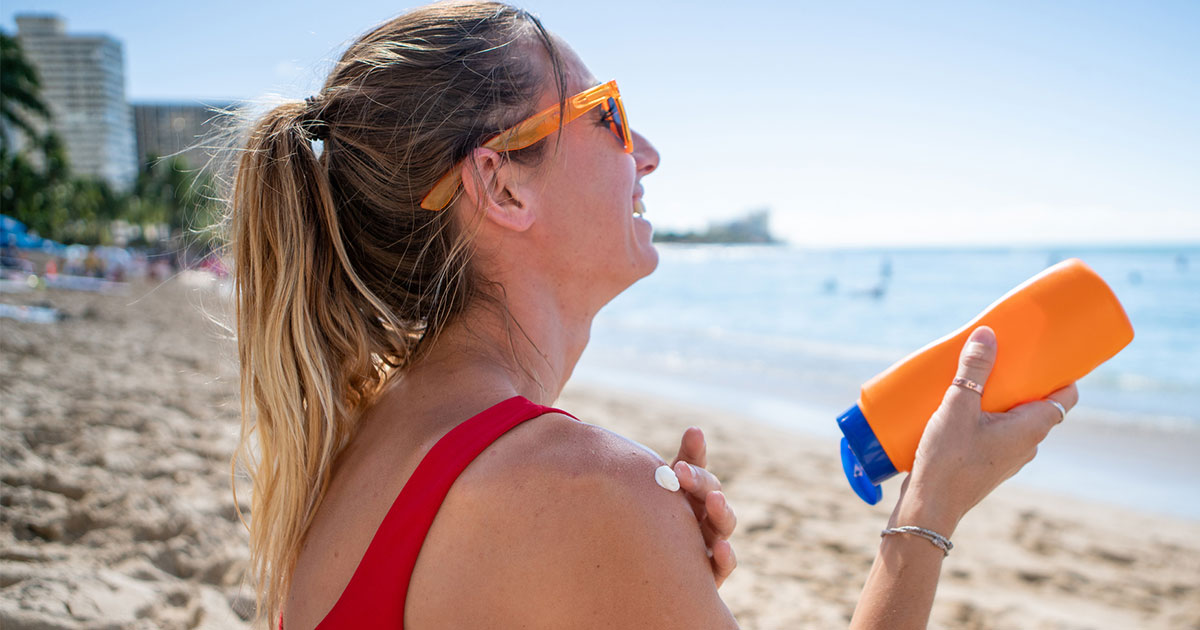Ahh … summertime! Who doesn’t love the feeling of the sun’s warmth on your skin and the long, bright days of sunshine? You’re probably looking forward to your favorite warm-weather activities—bicycling, picnics, water sports and more.
But before you go outdoors, protect yourself and your family from the type of sun exposure that can put you at risk. Skin cancer is the most common type in the United States, with more than 3.5 million people diagnosed yearly. Basal and squamous cell cancers, which make up 95 percent of skin cancers, are caused by cumulative, long-term exposure to the sun’s ultraviolet (UV) rays. But UV exposure for as little as 15 minutes may damage your skin.
Using an appropriate sunscreen is vital to protecting your skin, but many sunscreens don’t prevent all types of UV damage. High-energy UVB rays burn the skin—that’s the redness you can see—and play a role in causing cancer, but they make up just 3 to 5 percent of UV radiation. UVA rays, which are the majority, may not cause redness, but they penetrate skin tissue more deeply. They can generate free radicals, damage your skin’s DNA, advance skin aging and cause skin cancer.
There’s a wide variety of sunscreens to choose from, and in recent years, clothing with UPF (ultraviolet protection factor) ratings have become increasingly popular.
Before splurging on summer protection, read more about sun-safety myths from the experts at Cancer Treatment Centers of America.
About Cancer Treatment Centers of America®
Cancer Treatment Centers of America® (CTCA) is a national network of five hospitals that serves adult patients who are fighting cancer. CTCA® offers an integrative approach to care that combines advancements in genomic testing and precision cancer treatment, surgery, radiation, immunotherapy and chemotherapy, with evidence-informed supportive therapies designed to help patients physically and emotionally by enhancing their quality of life while managing side effects both during and after treatment.
Stay up to date on all things CTCA! Be sure to follow them on Facebook, Instagram, Twitter, Pinterest and YouTube or call the VIP Line at 800.227.3207 for more information.



